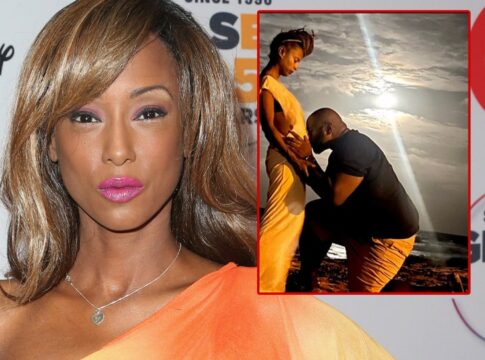Ask A.J. is Slate’s advice column on addiction, recovery, and how to hate yourself less. Submit a question here. It’s anonymous!
Dear A.J.,
I quit drinking two years ago because it got inexcusably bad. What I’ve struggled with is the pressure to deny the intellectual, social, and aesthetic pleasure I got from alcohol. Often, sobriety culture implies that I wasted my time in the boozing life, and I feel quite differently. Alcohol was once a regular, important component of my life, but I was paying attention. I savored the good stuff; I had a healthy relationship with booze for a much longer time than it was unhealthy. What is a good way to recall, by myself and with others, the happy, healthy memories of my life? You will need to take my word on this, but I’m not white-knuckling it. I don’t want this to be the first day of the rest of my life; I lived my life and I liked the vast majority of it.
—A Drinker Long Before a Drunk
Dear a Drinker,
I’ve had the same thoughts about my own drinking career—do all my good ol’ days become bad ones from here on out? Does the fact that I needed to stop drinking, due to how much it began to pollute my life, mean that I must only think about alcohol as something I enjoyed because of the self-destruction it offered?
The short answer is no. The recovery community, or as you call it, “sobriety culture,” has not opened up its own Thought Police wing. You don’t need to reframe every part of your drinking era as something terrible and ruinous. But I do want you to think about whether reminiscing about booze-soaked memories is actually helpful for you.
Because in my first two years of abstinence, I had trouble thinking about some of the Best Nights Ever without waking up the devil inside me. Even after eight years as a nondrinking, very sober person, that devil is always lurking.
Those first two years sober provided me with many things, including a family, a job, and a sense of purpose. But plenty was missing, including all the wild-ass fun I participated in as a card-carrying party tornado.
Even with all my good sobriety and plastic chips and being warmed by my Higher Power’s embrace, that still wasn’t replacing the joy and comfort I used to associate with drinking and, in my case, drugs. Because drugs did provide me with some extraordinary, life-changing, firework-eyed nights similar to the ones you’re reminiscing about. There were plenty of incredible concerts and holiday parties and summer BBQs I was completely shit-faced at that I can still smile about without guilt or regret. And I spent some incredible nights barhopping when I didn’t end up pissing my pants or causing some sort of uncomfortable melodrama resulting in me sending out one of those “sorry about last night …” emails the following morning.
But thinking about those fun memories involving substances didn’t make living my present life any easier. I wouldn’t go as far as to say that I was tempted to drink again (“Maybe I can have one or two like a normal person now …”). But I could definitely see how a temptation could have sneaked up on me if I hadn’t maintained some degree of vigilance—it’s important I remember who I am.
So, Drinker Before a Drunk, here’s an honest question I’d like you to ask yourself: Is any of your insistence about how “important” booze was in your life triggering? Sorry. I had to ask.
It sounds like you chose to stop drinking because it was no longer enhancing your life and became more of a burden, and, as you plainly stated, your drinking behavior became “inexcusably bad.” But do I also sense a bit of wistfulness about how things used to be for you? Ask yourself if you are clinging to the past a little too much—and if that’s a big flashing warning sign that a relapse is coming, one that could potentially drive you back to those unhealthy drinking habits, or into the routine of doing something else self-destructive.
One of my favorite recovery memoirs is David Carr’s The Night of the Gun, which is not a deep cut since it typically pops up on many people’s Top 10 Recovery Memoir lists. If you read it, you may also believe that Carr takes on a somewhat scolding tone, warning fellow party boys about the wreckage demon alcohol can cause (perhaps this book is even part of where your impression of “sobriety culture” comes from). One of my favorite mini-chapters of the book comes smack in the middle of it, and it’s called “Rx for Garbage Heads,” which I found invaluable in my early sobriety. It addresses a little bit about what you’re lamenting, but it’s not a perfect fit: “The line between prurience and pratfall is razor thin. Nothing doing here, nothing but triggers, keep moving.”
The context here was that Carr was suggesting that no one should read “junkie memoirs” in early sobriety because there isn’t enough distance between your worst moments and your new sobriety yet. You have times when you miss booze, are still figuring out your new life … and maybe you no longer see those worst moments as cause for your continued abstinence. So to wit: If you dwell too much on the past and worry about the future, you’ll piss on the present, or however that saying goes.
Just don’t feel any shame about your past right now. The exact details of how much of a blacked-out buffoon you were two years ago are no longer important. Instead, allow yourself to believe that if you stick to not drinking, your sober life could have even more of those “happy, healthy memories” and open up your heart and your world to experiences you may have never even thought possible. Your best days are not behind you, so don’t worry about letting the memories slip away. Go live that crazy dream and have more wild-ass fun without the risk of your drunken idiocy ruining it. You’re doing great—stay present and right here with us, and good things will happen. I promise. Pinkie swear, even.




